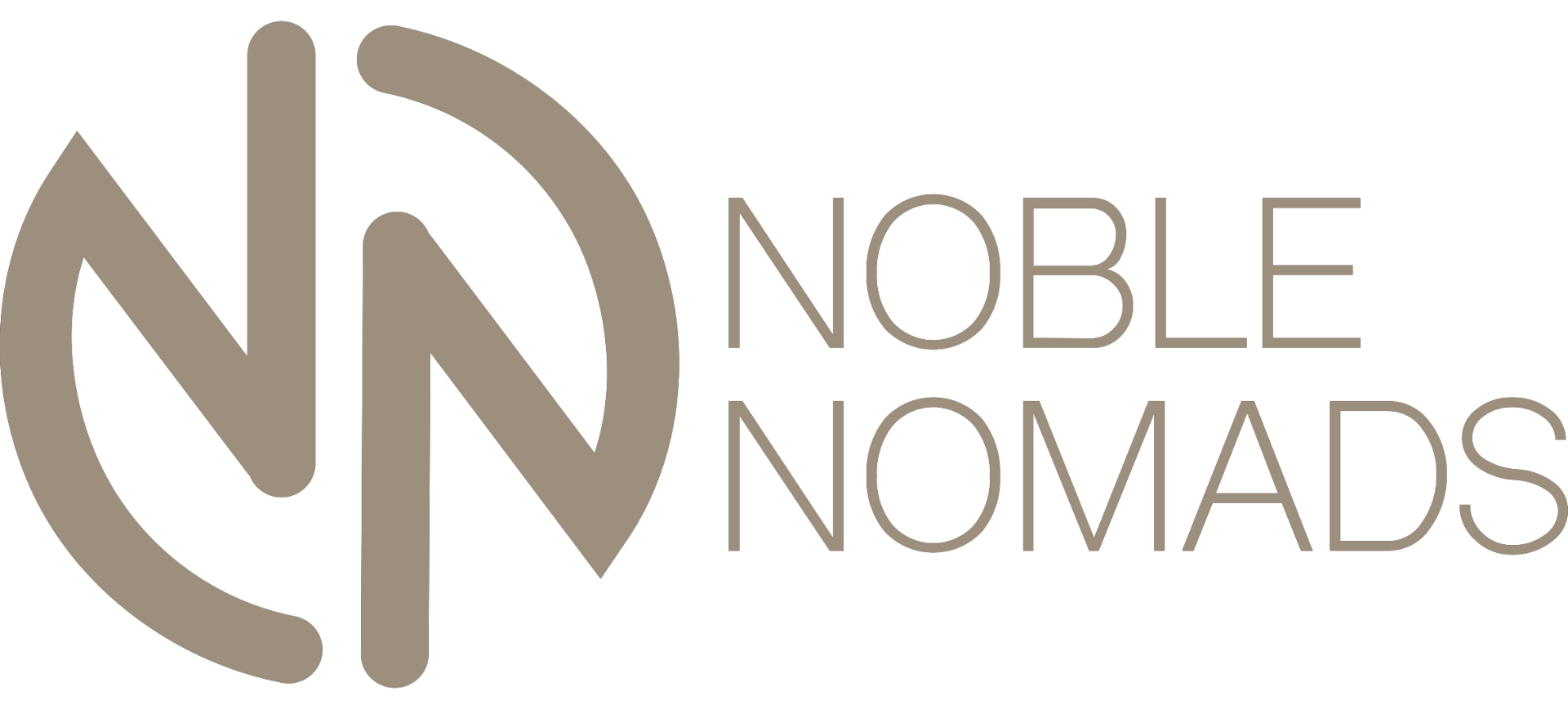Mongolia: Interview with Munkhbold Bold

Çiğdem Gül: Munkhbold, your first name and surname sound very European. Is Munkhbold Bold a Mongolian name? If so, what does your name mean in German?
Munkhbold Bold: Yes, that's a Mongolian name. In German, it means BOLD = STRONG, MUNKH = ETERNAL => ETERNAL STRENGTH. Many parents in Mongolia give their children traditional names like this, which are supposed to indicate the positive qualities they hope their children will have.
Çiğdem Gül: Would you please introduce yourself to our members and visitors of the Intercultural Network for the Gifted and Talented?
Munkhbold Bold: My name is Munkhbold Bold, and I was born on 06.12.1985 in the Mongolian capital Ulaanbaatar. I am the second-born son of my parents. As a child, I spent half of my life with my family, some of whom still live traditionally as nomads, in the countryside. I came to Germany on 09 November 2005. The first thing I played was football and went to language school. Later, I studied computer science at university. As a student, I did all kinds of work during the holidays. From dishwasher to shift manager in the restaurant, just about anything that paid. Later on, I did my first IT internship at Elbmind GmbH in Dresden. Then i worked as a software developer at the TU Dresden and Gabo mbH Co.KG. In December 2017, together with my friends and my brother founded Noble Nomads GmbH together with my friends and my brother Tselmeg.
Çiğdem Gül: What languages exist and are spoken in Mongolia?
Munkhbold Bold: Mongolian is the official language of Mongolia, which is our national language. In the last 20 years, foreign languages such as English, Russian, German, etc. have also been increasingly taught in Mongolian schools.
Çiğdem Gül: In which city and for how long did you live in Mongolia? How did you experience your socialization in Mongolia?
Munkhbold Bold: Yes, I lived in Mongolia until I was 19 years old. Mongolia. Mainly in the capital Ulaanbaatar. I went to kindergarten and then primary school. In Ulaanbaatar, I had also started my studies. During the holidays, I always went with my family, where the animals of the nomadic part of my family graze.
Çiğdem Gül: What does your image of home look like?
Munkhbold Bold: My home country, Mongolia, is a land of endless possibilities. Mongolia is a developing country, but we have everything except know-how and modern knowledge. Mongolia has a long history in the world. From the Huns to our Khans, who ruled half the world, to the decline of so-called socialism and now the difficult resurrection of modern democracy. In the last 25 years, the changes in Mongolia have happened very quickly and very drastically. Our nation, which has lived nomadically for 1000s of years, must learn to live in the globalized world of the 21st century. This is an extremely difficult, often painful process. But I am very proud and glad that we are learning well and quickly and moving forward. Unspoiled nature, the people, animals and our cultural traditions are our treasures that we must preserve and protect.
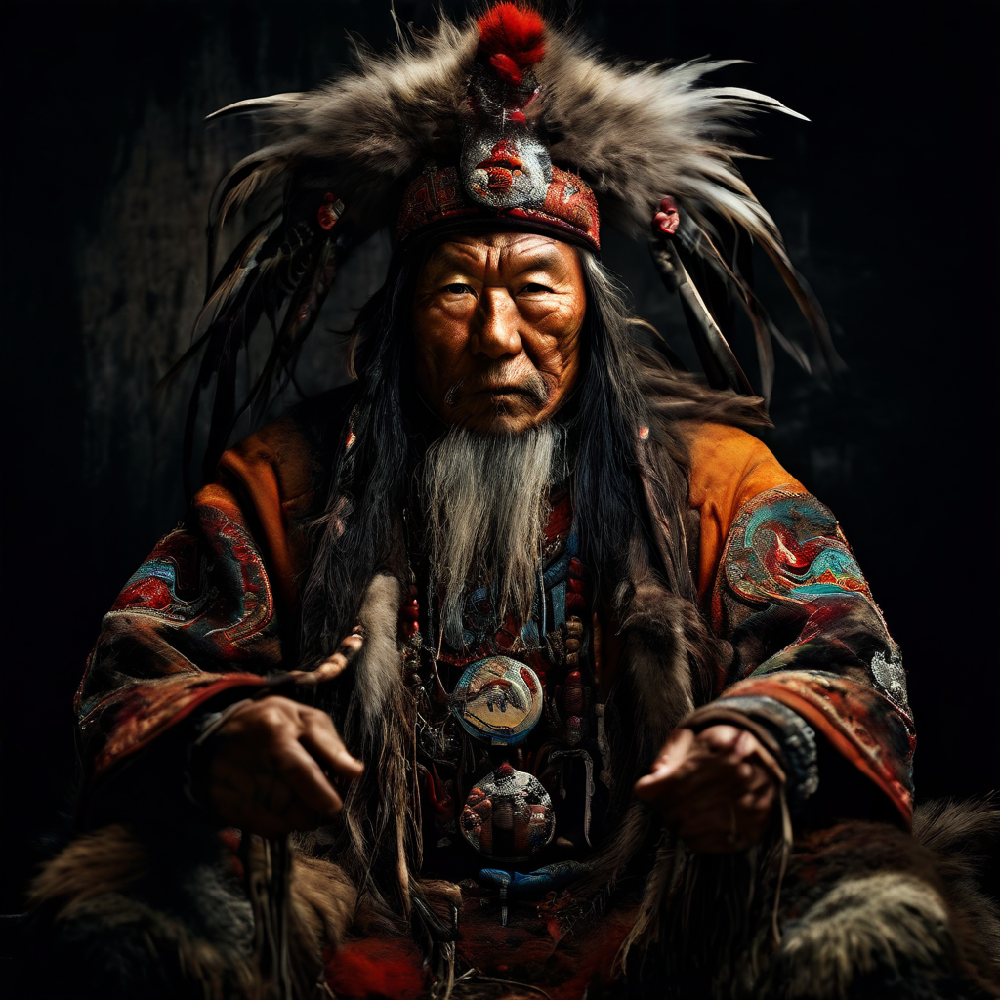
"BUT OUR VERY OWN FORM OF RELIGION IS SHAMANISM. SHAMANISM IS BASED ON THE ASSUMPTION THAT ALL NATURE IS ALIVE AND FULL OF SPIRITS, INCLUDING THE SPIRITS OF OUR ANCESTORS. THESE SPIRITS ARE IMMENSELY IMPORTANT FOR ALL QUESTIONS OF DAILY LIFE AND MUST BE CONSTANTLY QUESTIONED, INVOKED AND APPEASED.”
Çiğdem Gül: More than half of the Mongolian population lives in Mongolia's capital and its periphery. The other half is nomadic. My research has shown that the Mongolians are considered a traditional nomadic people. It is generally assumed that Mongolian culture is almost exclusively a nomadic culture. However, Mongolian culture is made up of a variety of influences. Although the culture is strongly characterized by the nomads, there are also Tibetan, Buddhist, and Russian influences.
Please tell us your view of Mongolian culture(s).
Please tell us what the special features of Mongolian culture(s) are.
Munkhbold Bold: The Mongols are one of the last nomadic peoples in Asia. For thousands of years, we have lived in harmony with nature and our animals. Our special culture has developed from this. In the past, in the times of the great Khans, we had all kinds of religions and cultures, because our empire encompassed half the world and naturally the most diverse religious and cultural influences came back to our original homeland from these conquered countries. You can think of this as the first form of globalization. But our very own form of religion is shamanism. Shamanism assumes that all nature is alive and full of spirits, including the spirits of our ancestors. These spirits are immensely important for all aspects of daily life and must be constantly consulted, invoked, and appeased. People must live in harmony with this animated nature to have a fulfilled and happy life and to be able to master the daily dangers and challenges. Buddhism later came to Mongolia from Tibet. My personal opinion is that Buddhism teaches us how to live peacefully with each other and with nature. It is a philosophy of life for a peaceful, fulfilling life.
Today, Mongolia borders only two countries, Russia and China. Relations between Russia and Mongolia have been good for a very long time. Of course, there are many good and bad influences from Russia, and there are also many cultural influences from there. The same can be said about China. But in the information age, my generation is not only culturally influenced by Russia and China but also by the culture of many other countries. Rock music from the USA, theater, and classical music from Europe, these influences can now be felt everywhere in Mongolia. So it is difficult to preserve our specialties, our cultural identity. But we will preserve our culture. We will ensure that tradition and modern life complement each other and are not mutually exclusive. We nomads are very adaptive and have a fighting spirit, otherwise we would never have been able to survive in the extreme climatic conditions of my homeland.
"For the most part, nomadic life works exactly as it did 500 years ago. [...] We don't need electricity, mobile phones, GPS, or the internet, and we get by without the Oscars and Parisian haute couture. The values that count in the cities, such as money, power, appearance, and apparent prestige, are completely meaningless for the life of nomads in the countryside. Money or power is of no use if you can't look after the herd well if you can't ride a horse well if you lack humanity and if you can't manage to live in harmony with nature. True love for each other and a good portion of respect for all creatures simply count much more to live well and happily."
Çiğdem Gül: What do you find so fascinating about nomads in Mongolia?
Munkhbold Bold: A nomad in Mongolia lives in freedom. He lives independently, together with his family and his animals in a huge, boundless, intact ecosystem. Determined by the rhythm of the seasons and the needs of his animals. For the most part, life works just as it did 500 years ago, regardless of the blessings and curses of the modern world. We don't need electricity, mobile phones, GPS, or the internet, and we can do without the Oscars and Parisian haute couture. The values that count in the cities, such as money, power, looks and apparent prestige, are completely meaningless for the life of nomads in the countryside. Money or power are of no use if you can't look after the herd well, if you can't ride a horse well, if you lack humanity, if you can't manage to live in harmony with nature. True love for one another and a good portion of respect for all creatures simply count much more in order to live well and happily.: What do you find so fascinating about nomads in Mongolia?
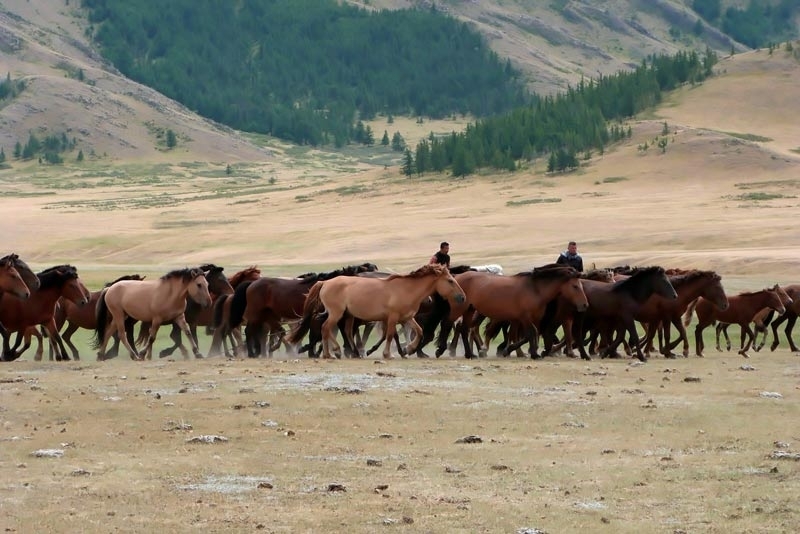
"THE SIMPLEST, MOST ORIGINAL FORM OF LIFE CAN MAKE YOU THE HAPPIEST PERSON IN THE WORLD."
Çiğdem Gül: What can we learn from the nomadic lifestyle?
Munkhbold Bold: The love and respect for everything. For the entire animated universe, people, animals, nature. We believe that there is a meaning to everything and that everything exists for each other. We are also constantly learning from nature, the weather, our animals, and the landscape. The simplest, most original form of life can make you the happiest person in the world.
"We nomads are very adaptive and have a fighting spirit, otherwise we would never have been able to survive in the extreme climatic conditions of my homeland."
Çiğdem Gül: In the world of Mongolian nomads and Mongolians in general, is there theater, theater performances and art that describes the life of the nomads or sheds a critical light on it? Please tell us about them.
Munkhbold Bold: Of course we have theater, literature, film, painting, music and the art of sculpture in Mongolia. And of course these deal with our life, with the life of the nomads. Religion, especially Buddhism, plays a major role in our type. Many paintings and music are strongly influenced by Buddhism. But there is also a lot of modern art. For example, you can listen to good Mongolian rock music in many places in the capital on the weekend.
Çiğdem Gül: What would be your favorite production on a Mongolian theater stage?
Munkhbold Bold: A modern piece about the Great Khan, about Genghis. To this day, his influence, and pride can be felt in the daily life of every Mongolian.
Çiğdem Gül: How strongly is Chinese society influenced by the old Mongolian spirit?
Munkhbold Bold: Think of Inner Mongolia or Uighur. Otherwise, the old influences are hard to find in modern Chinese autocratic society. Society is difficult to find. Decades of the dictatorship of the Chinese Communist Party with such extreme things as the Cultural Revolution have destroyed much of what could have been preserved.
Çiğdem Gül: The culture of the nomads is changing due to the political, social, and economic conditions. Can you please tell us more about this? How long will the nomadic culture still exist?
Munkhbold Bold: It is clear that our culture is under just as much pressure as many cultures of different peoples around the world, which have slowly developed over many centuries and represent the treasure of humanity as a whole. Today, all of this is under threat from globalization and the exclusive focus on maximizing profits. The modern, market-oriented world order has no regard for the cultural identity of people. In this respect, the market is not so different from the Chinese Communist Party. It's best to have McDonald's and Hugo Boss all over the world. Large companies from the USA, Canada, and China are already buying up many herds in Mongolia, slaughtering the animals and marketing the meat. The former herd owners, the nomads, then sit in Ulan Bator with the money, buy themselves a luxury limousine, and now have nothing more to do than eat and drink vodka. They have lost the meaning of life. With our company 'Noble Nomads' we would like to contribute to the preservation of the cultural identity of our people by helping to offer high-quality, ecologically produced nomadic products at a fair price in Europe.
Çiğdem Gül: I read that Mongolian culture would be systematically destroyed by China. Is this statement true? If so, please tell us what is happening there politically and economically.
Munkhbold Bold: The danger exists. But this is certainly not a large-scale political plan, but the result of unrestrained economic and exclusively profit-oriented action. Whole herds of animals are being bought up, and land in Mongolia is also being bought up by Chinese investors through straw men.
Çiğdem Gül: More and more animal and plant species are threatened with extinction due to human activity. Some people stand up for them. Who is standing up for the Mongolians in China so that they and their culture do not become extinct?
Munkhbold Bold: Most Mongolians in China live in what is known as Inner Mongolia. Their culture is under the same pressure as the culture of the Tibetans or the culture of the Uyghurs. It often depends on how the respective provincial government thinks and acts. Whether a certain cultural autonomy is promoted or not. The Beijing line is already such that these identities should be preserved within certain limits. In the case of the Mongols in China, it is also the case that more and more tradition-conscious Mongols from Mongolia are traveling to China to help preserve Mongolian culture there.
Çiğdem Gül: During my preparations and research for our interview, I read on a reputable website that the nomads in Inner Mongolia are being blamed for China's environmental problems. To prevent the desertification of the landscape, they are no longer allowed to keep animals. In return for a small amount of compensation, the former nomads are now expected to settle in towns and villages. As a result, they are losing their old culture, their identity, and their ability to live together as a group. Because in the city, it's every man for himself. Can you tell us something about this?
Munkhbold Bold: I've also heard that many Mongolians are supposed to move to the cities in Inner Mongolia. Of course, this leads to the loss of the old cultures. But that's not the case everywhere, it depends on the respective provincial government and the will of the population to resist.
Çiğdem Gül: What other religions are represented in Mongolia besides shamanism?
Munkhbold Bold: Shamanism is the old religion, Buddhism came later from Tibet, and I have already described both religions in another question. I myself am an atheist, but I respect all religions. If I followed my tradition, I would be a Buddhist, because one of my ancestors was a famous Buddhist teacher. My great-grandfather defended his PhD "Gawj" in Buddhism at the age of 106. He is still considered a famous "Gawj" today, and books have been written about him.
Çiğdem Gül: How can we Europeans imagine the religious ceremonies in Mongolia?
Munkhbold Bold: Buddhism should be well known in Europe, there are Buddhist centers everywhere. Shamanism, the ancient nature religion, is more interesting. Every place is considered to be animated, inhabited by spirits. In ancient ritual dances and trances, in spirit ceremonies, the shaman tries to consult these spirits and to make them favorable for the life of his tribe, and his family.
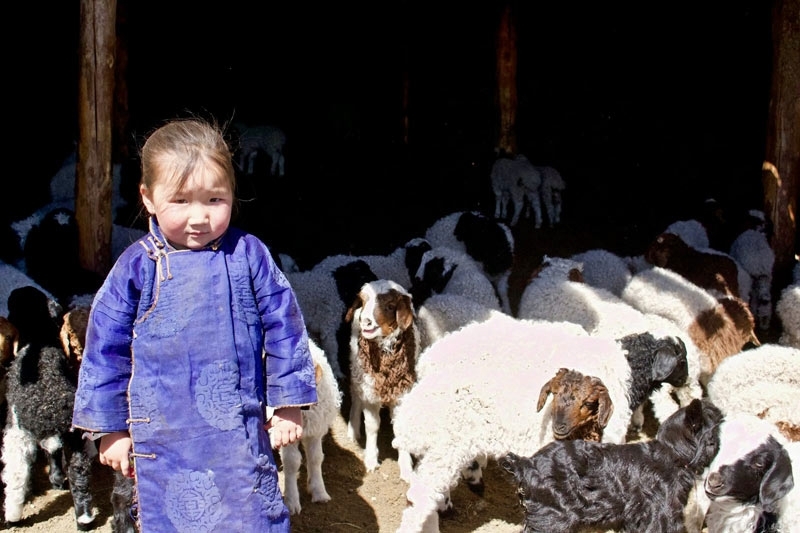
Çiğdem Gül: What about education for Mongolian children?
Munkhbold Bold: There is general schooling for everyone. The children of the nomads live in boarding schools during the school year and go home during vacations. However, the state schools are not particularly good in many places. Those who can afford it send their children to expensive private schools.
"IQ scores are less important than experience and social skills. These are far more significant for the daily life of the nomads. There are associations in Mongolia that look after the highly gifted, but these are almost exclusively limited to Ulaanbaatar."
Çiğdem Gül: What is considered intelligent in Mongolian culture? A high IQ, the social (nomadic) life, emotional intelligence?
Munkhbold Bold: IQ is less important than experience and social skills. These are far more essential for the daily life of nomads.
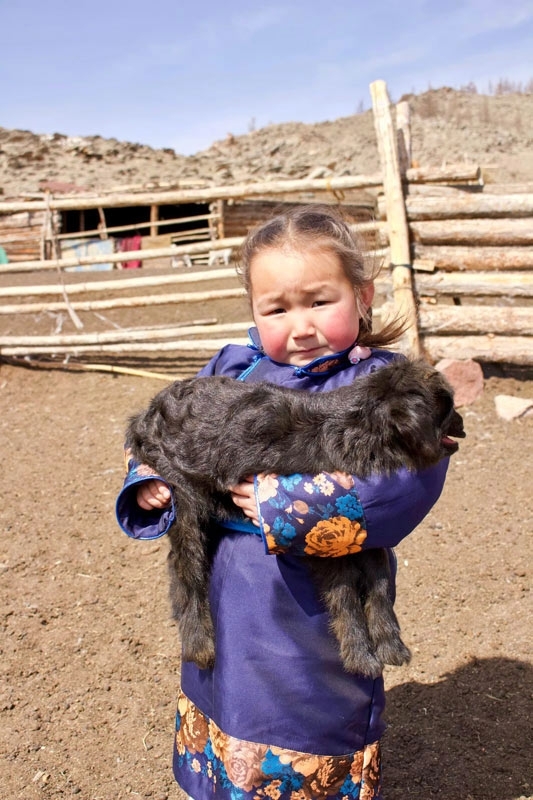
Çiğdem Gül: Gifted people often ask questions, they scrutinize everything, and deal with issues critically. I imagine a gifted or highly gifted nomadic child in Mongolia. What challenges do these children face there? What might their attitude to life be like there? How do the highly gifted nomads in Mongolia quench their thirst for knowledge?
Munkhbold Bold: The life of a gifted person is certainly not easy in Mongolia. Compared to Europe or America, there is much less experience in dealing with gifted people. Firstly, you have to recognize that.
Çiğdem Gül: Are there any networks or a MENSA association for gifted people in Mongolia?
Munkhbold Bold: There are associations in Mongolia that look after gifted children, but they are almost exclusively limited to Ulaanbaatar.
Çiğdem Gül: If your Mongolian ancestors were alive in Germany today: What would you most like to say to them?
Munkhbold Bold: I would say how grateful I am that I was able to experience both lives. The life of my family in Mongolia and the life of my friends here in Germany. And I would say that I have great hope that we as Mongolians will succeed in this difficult balancing act between preserving our cultural traditions and incorporating and using modern elements of life such as medicine, infrastructure, and education. And I would tell them that I, my brother and our friends will make a contribution to this with our company 'Noble Nomads'.
Çiğdem Gül: Dear Munkhbold, thank you very much thus on behalf of my team at the Intercultural Network for the Gifted for your openness and your valuable answers.
I am very impressed by your diversity, depth, and maturity.
I wish you continued success.
